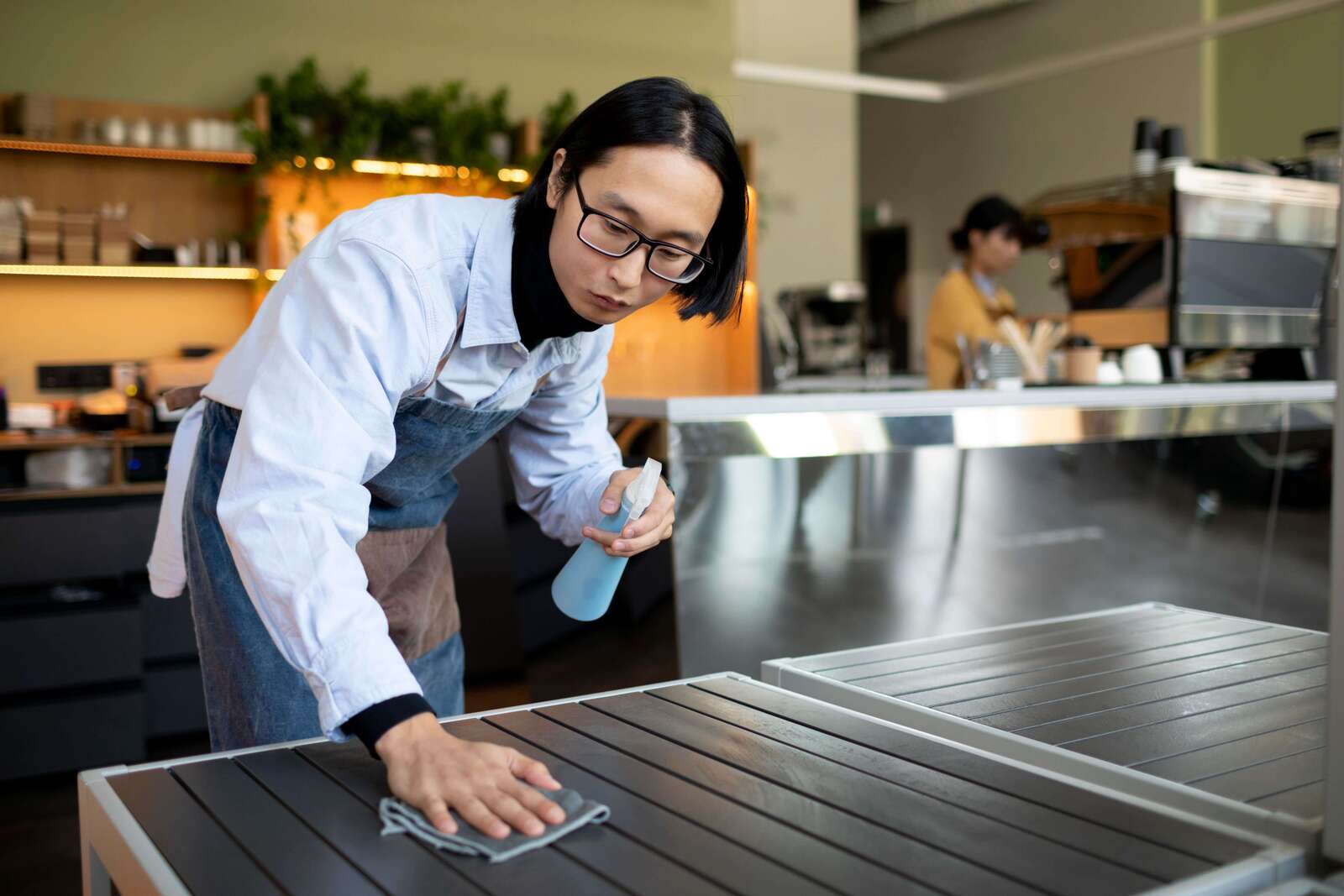
How to Choose the Best Cleaning Chemicals for Your Restaurant’s Kitchen
Running a restaurant is no small feat, especially when you consider all the moving parts that need to come together. One critical aspect that demands attention is keeping the kitchen spick and span. For this, having the right cleaning chemicals is absolutely essential. Whether you're scrubbing away the remnants of a busy dinner service or preparing for the day ahead, cleaning chemicals for restaurants play a pivotal role in your kitchen's hygiene.
Understanding the Unique Challenges of Restaurant Kitchens
A restaurant kitchen isn’t your everyday home kitchen — it faces unique cleaning challenges that require specific solutions. From massive ovens to bustling grills, every piece of equipment sees plenty of action. Grease, food residues, and stains are just the tip of the iceberg. To tackle these efficiently without harming your equipment or compromising food safety, selecting the right cleaning products is key.
Types of Cleaning Chemicals
Before diving into the specifics, it’s important to understand the types of cleaning chemicals available. Each has its own place in your cleaning arsenal.
Degreasers
If there’s one thing every restaurant kitchen battles daily, it’s grease. Degreasers are designed specifically to cut through grease, oil, and stubborn organic stains. They often feature ingredients like sodium hydroxide and potassium hydroxide, making them perfect for cleaning ovens, grills, and fryers. Whilst they're powerful, it's important to use them as directed to avoid damage to surfaces.
Abrasives
These are your go-to for scrubbing away those particularly stubborn grime patches. Abrasives contain tiny particles that can make short work of baked-on food or grime. Use them selectively; while effective, overuse can risk damaging delicate surfaces.
Acids
Acid cleaners are excellent for removing mineral deposits and water scale, often utilised in products like vinegar. They’re particularly handy for dishwashers and descaling appliances. However, always use them cautiously and often in a diluted state to prevent corrosion or toxicity.
Descalers
A cousin to acid cleaners, descalers target hard-water deposits that can muck up your equipment. Essential for maintaining dishwashers, ice machines, and more, they ensure that your equipment runs smoothly and lasts longer.
Detergents
The workhorse of the cleaning world, detergents are widely used for a reason. They break up grime and help wash away contaminants effectively. Available in various forms like liquid, gel, or powder, they're typically pH-neutral, making them versatile for a range of cleaning tasks.
Specific Cleaning Chemicals for Restaurant Areas
Chemicals for Coffee & Espresso Machines
If you’re serving coffee, keeping your machines free from coffee oils and old residues is vital. Specialised cleaners help maintain not just the flavour of your brew, but also the functionality of your machinery.
Oven and Grill Cleaners
High-heat cooking can leave your ovens and grills coated in grease. Alkaline cleaners with ingredients like sodium hydroxide strip away these residues, ensuring your equipment operates efficiently and safely.
Dishwashing and Sanitizing Chemicals
Ensuring dishes are free from food residue and are sanitized appropriately is a non-negotiable aspect of food safety. Dishwashing detergents and sanitizers, often containing quaternary ammonium compounds, guarantee this cleanliness, with some formulated for no-rinse applications on food-contact surfaces.
Floor Cleaners
Floors face some of the toughest grime. Heavy-duty floor cleaners often feature a cocktail of chemicals designed to soften water, break down oils, and kill bacteria. These protect and clean hard surfaces across the kitchen.
Glass Cleaning and Sanitizing
Sparkling glassware is a must. Specialized chemicals designed for glass washing ensure there’s no residue, keeping everything crystal clear and sparkling — a must for impressing diners.
Cutting Board and Block Whiteners
White and sanitized boards are a hallmark of a clean kitchen. These specialized cleaners help maintain hygiene standards and extend the life of cutting boards and blocks.
Safety Precautions and Handling
Handling cleaning chemicals comes with its own set of responsibilities. Here’s how you can keep your team safe:
Labeling and Storage
Proper labelling is indispensable. Ensure bottles are clearly marked with chemical names and hazards. Storing these chemicals safely, away from food and equipment, prevents accidents. Always place liquid chemicals on lower shelves to avoid spills.
Using Personal Protective Equipment (PPE)
Your staff’s safety is paramount. Equip them with PPE such as gloves, aprons, and eye protection. For those with allergies, non-latex gloves are essential.
Mixing Chemicals
Mixing certain chemicals like chlorine and ammonia can create hazardous gases. It's crucial to follow labelling and ensure staff are trained to handle chemicals properly.
Emergency Protocols
Accidents happen, but being prepared can mitigate damage. Ensure emergency protocols are visible and that staff know how to respond to spills, leaks, and accidents.
Safety Data Sheets (SDS)
Keeping Safety Data Sheets (SDS) on hand is a legal requirement. These sheets detail chemical hazards and contact information for manufacturers, ensuring you're prepared in any situation.
Best Practices for Using Cleaning Chemicals
Proper Dilution and Application
Following the manufacturer's instructions regarding dilution and application is critical. Using incorrect concentrations can result in ineffective cleaning or surface damage.
Rinsing Procedures
Many cleaning products require rinsing with potable water post-application, especially on surfaces in direct contact with food. Nonetheless, some no-rinse sanitizers applied as directed can remain on food contact surfaces without rinse.
Environmental Considerations
In today's environmentally-conscious world, eco-friendly cleaning products bear consideration. Automated dispensers for chemical use can ensure correct concentrations are used, aiding safety and the environment.
Conclusion
Navigating the landscape of cleaning chemicals for restaurants can be complex, but it’s crucial for ensuring your kitchen remains a bastion of cleanliness and safety. By understanding each chemical's use, always prioritising safety, and adopting best practices, you not only protect your kitchen but also serve your patrons with peace of mind.
